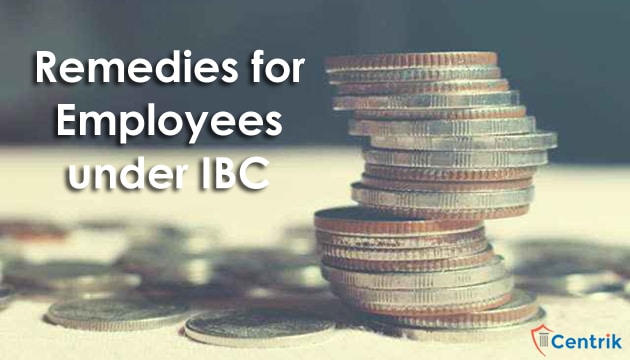
STATUS AS ON 25/04/2019
Under Insolvency and Bankruptcy Code, 2016 (IBC), there are two types of creditors who can file an insolvency application before National Company Law tribunal (NCLT) i.e. Financial Creditor and Operational Creditor.
Till now most of the applications entertained by NCLT have been filed by financial creditors which include all the banks, homebuyers, lenders and all the persons who have provided some financial aid to the corporate debtor having a time value of money.
What about the employees who have been providing their services under the employment of the corporate debtor and have been denied the salaries against their services?
As per section 5(20) and 5(21) of IBC Laws, the claims relating to employment have been classified under “Operational Creditors”.
Who are operational creditors?
As per section 5(20) of IBC operational creditor means a person to whom an operational debt is owed. To understand more clearly we need to understand the operational debt.
What is operational debt?
Operational debt means a claim in respect of the provision of goods and services including employment or a debt in respect of the repayment of dues arising under any law.
So as per the plain reading of above definition, It becomes clear that operational debt arises in respect of-
- Goods
- Services
- Employment
supplied to the corporate debtor and the corporate debtor has defaulted in releasing the claim against any of the above-mentioned services.
Who is an employee?
An employee is a person, hired by a corporate person or company to work on regular employment basis and is withdrawing fixed salary or wages from the same company. The employment is established if-
- The person is employed under the employer or corporate person
- Drawing a salary or wages
- Has entered into a contract of employment.
Application by an employee
Being an operational creditor, the employee can file an insolvency petition under section 9 of IBC. Employees are classified to be the operational creditors under IBC. Thus enabling them to approach NCLT under IBC, if the employer or corporate person denies or fails to release the salaries to the employees.
Employee’s under Resolution Plan
As per section 30(2)(b) the resolution plan should provide for the repayment of the debts of operational creditors in such manner as may be specified by the board which shall not be less than the amount to be paid to the operational creditors in the event of liquidation.
Case Law
The first petition which was filed by the employee under IBC was in the case of Aruna Hotel vs. Employee wherein the employee was entitled to get an amount of Rs. 2.6 Crs from the corporate debtor which was also established from the letter in which the employer acknowledged that the employer will clear those arrears but failed to do so. The employee demanded the same and also issued the demand notice regarding the same but all in vain. Thus the insolvency petition was admitted successfully against the corporate debtor.
Conclusion
After referring the provisions of the code and decision laid down by the adjudicating authority in favor of employee it is clear that the IBC is a comprehensive law that can redress the grievances of the employee as well. An employee is an operational creditor and has the right to file an insolvency application against the corporate debtor or employer under section 10 of IBC. Also, every employee has to be given equal treatment like other creditors and no preferential treatment shall be allowed.
Disclaimer – Please note that the above view is based on personal interpretation and for general awareness. The readers are required to take opinion from the Top IBC professionals or Insolvency Professionals before relying on the article. For any clarifications, please write to us at ibc@centrik.in





 join For Updates
join For Updates
who can claim wages s workmen. All workmen or their authorised representative or th RP?
All workmen whose salary or wages are pending as on Insolvency Commencement date.